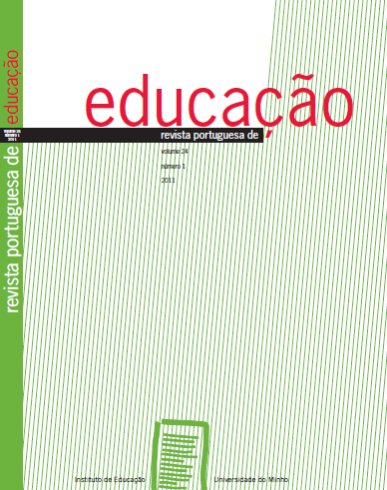TEACHER-CHILD INTERACTIONS IN ELEMENTARY SCHOOL CLASSROOMS: QUALITY INDICATORS
DOI:
https://doi.org/10.21814/rpe.3039Abstract
Recent research has highlighted the importance of the classroom processes to student performance. Accordingly, educational resources, such as the curricula and teacher training, although important, are not considered enough to guarantee student learning. On the other hand, it is increasingly acknowledged that the early elementary school years are crucial for later academic success. This paper presents a synthesis of recent research regarding the elementary classroom processes that are positively associated to student learning, as well as a conceptual model, the Classroom Assessment Scoring System (CLASS; Pianta, La Paro & Hamre, 2008), which organizes teacher-child interactions into three major domains: instructional, organizational and emotional. Based on these assumptions, implications for the educational system are discussed.
Keywords
Teacher-child interactions; Elementary school; Instructional support; Classroom management; Socioemotional support
Downloads
Downloads
How to Cite
Issue
Section
License
1. The authors preserve their authorship and grant the Portuguese Journal of Education the right to the first publication. The work is licensed under Creative Commons Attribution License that allows sharing the work with the acknowledgment of initial authorship and publication in this Journal.
2. The authors have the right to take additional contracts separately, for non-exclusive distribution of the published version of their work (e.g. to deposit in an institutional repository or as a book chapter), acknowledging the initial authorship and publication in this Journal.
3. The authors have the permission and are stimulated to post their work online (e.g. in an institutional repository or on their personal website). They can do this at any phase of the editorial process, as it may generate productive changes, as well as increase impact and article citation (see The Open Citation Project).
The work is licensed under Attribution-ShareAlike 4.0 International (CC BY-SA 4.0)




















